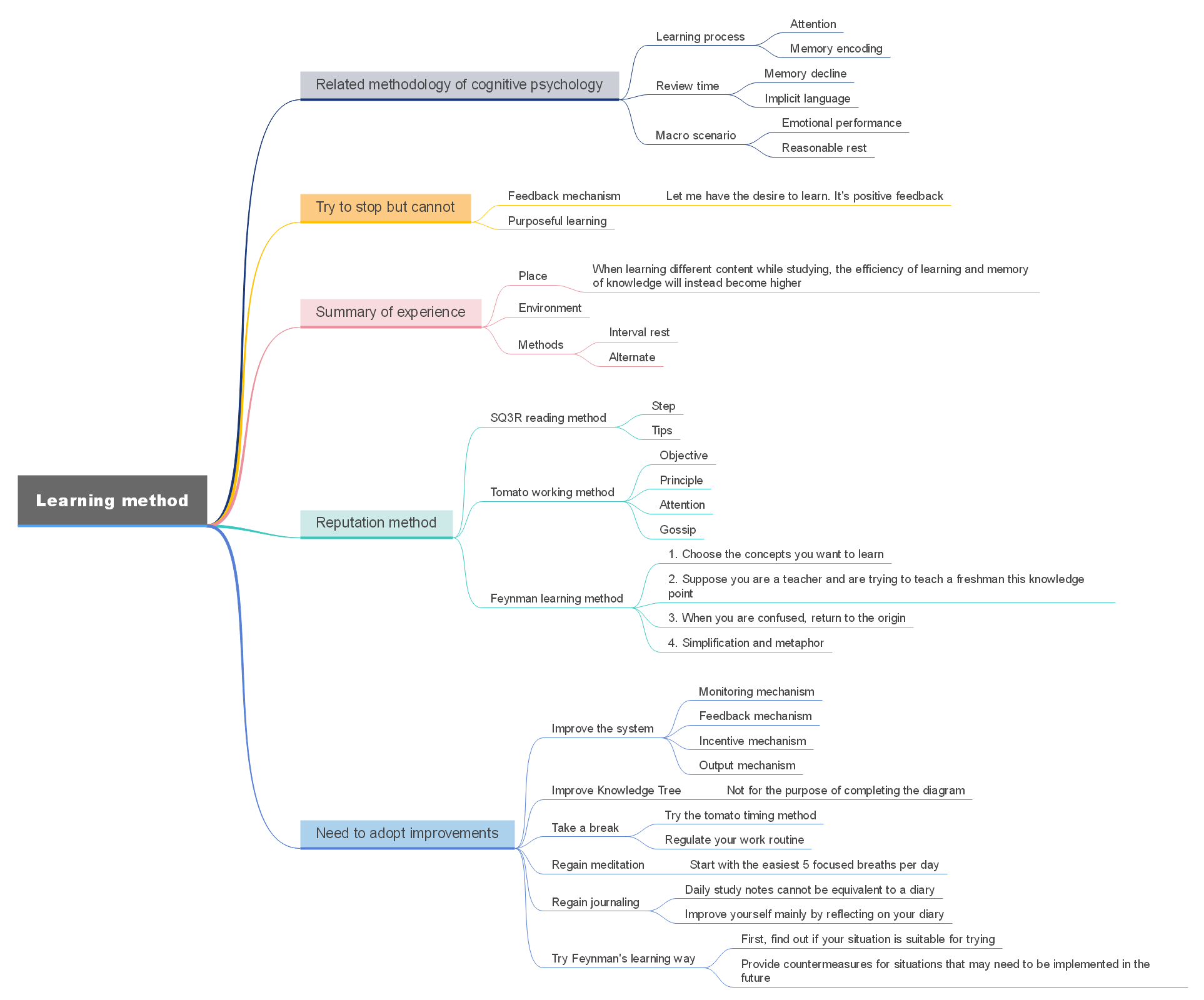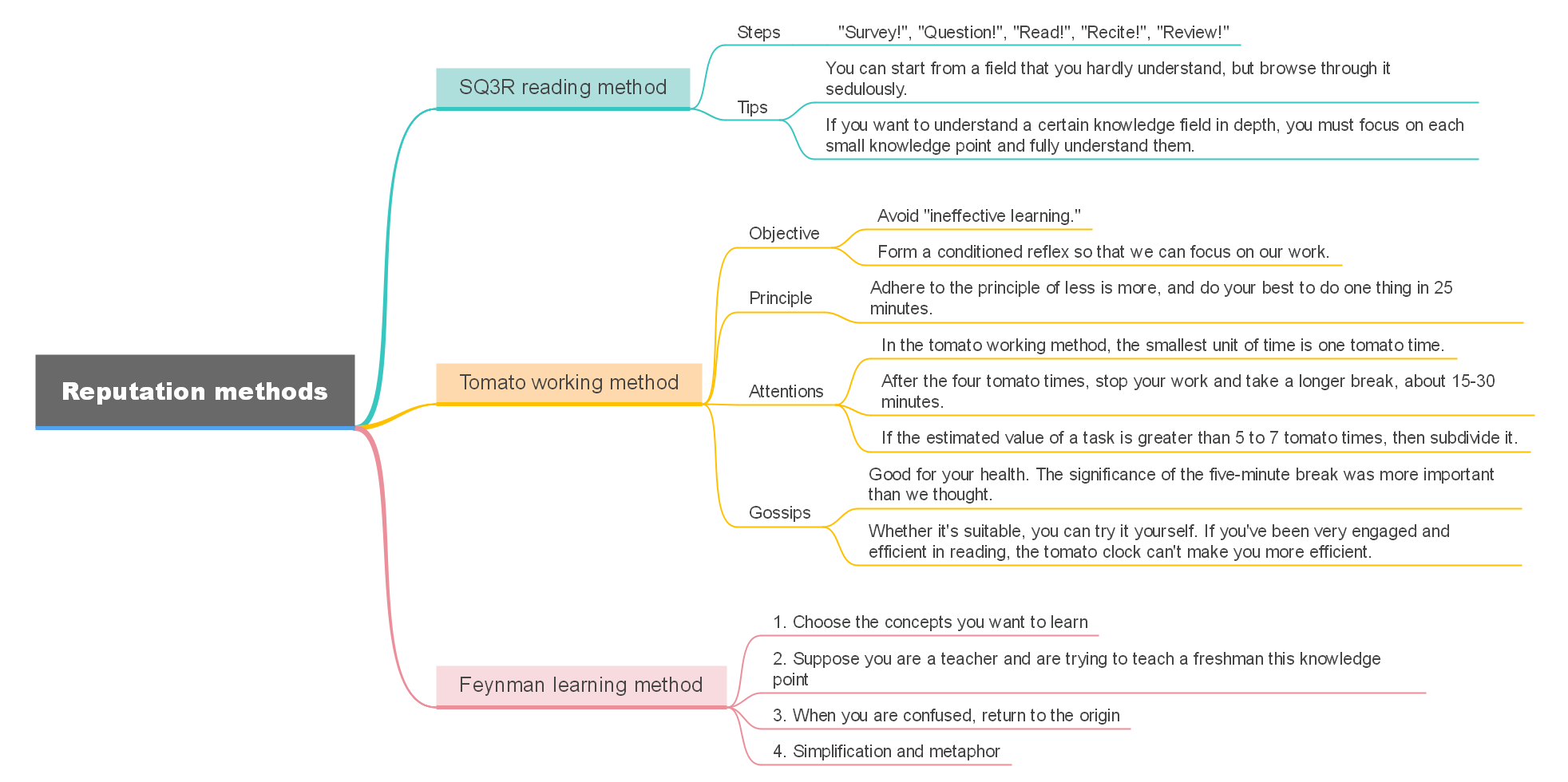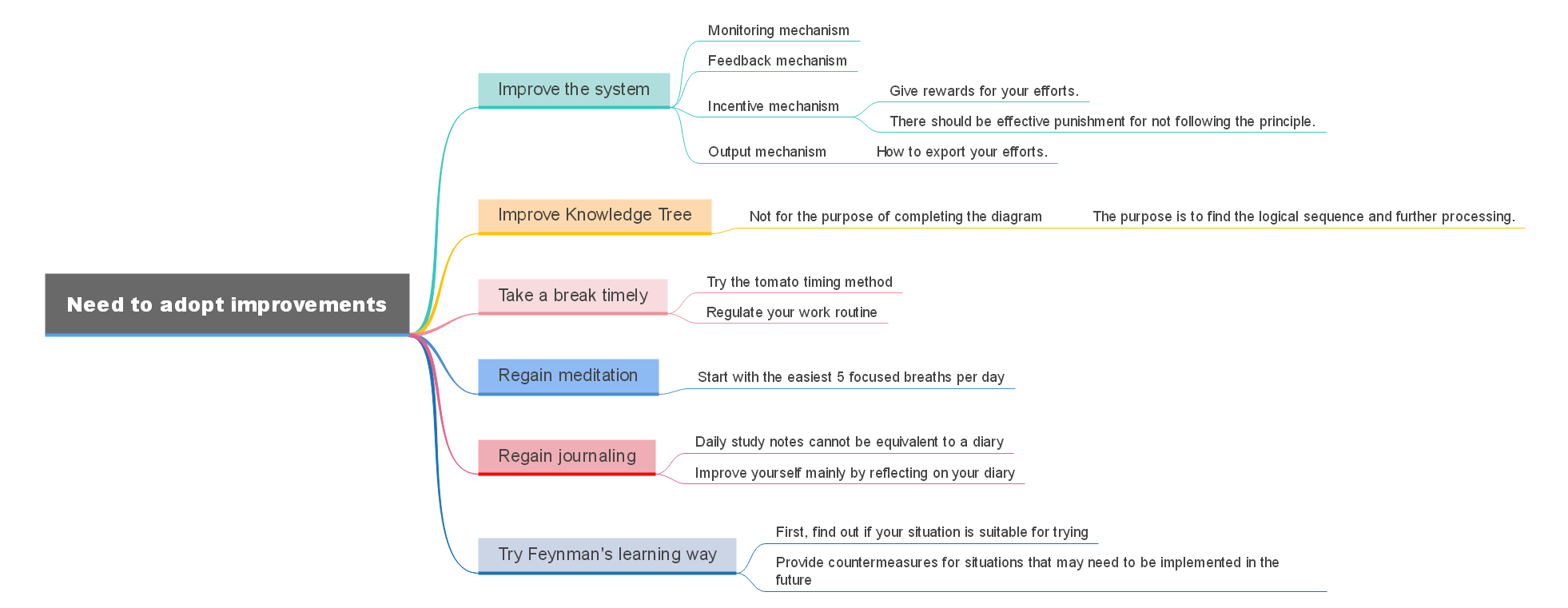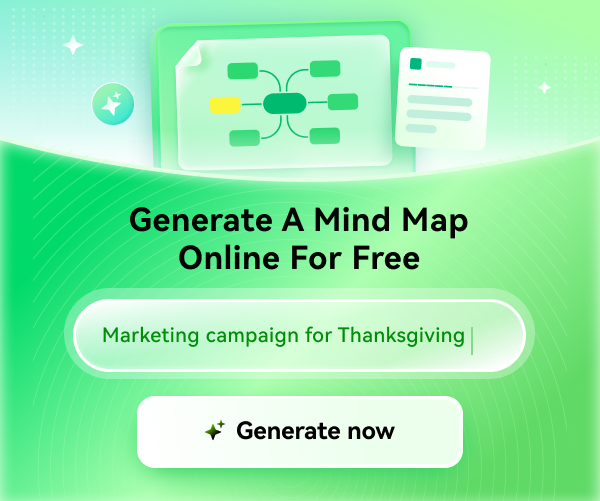How to Learn Efficiently: Tips & Methods
How to study efficiently must be what everyone wants to know. Even some scholars spend their lifetime just to find out some efficient learning methods. When I write this article, I can more or less recall some footprints and scattered parts of my search for efficient learning. Fortunately, I will learn with you now through MindMaster mind map, combining the courses I have learned and various efficient learning methods from Quora.

The related methodology of cognitive psychology
Firstly, we can get to know the cognitive psychology related methodology. Cognitive psychology puts forward three efficient learning methodologies. According to the learning process, cognitive psychology implies that the learning process is a combination of attention and memory coding. Among them, it points out that the learning process must be purposeful. This is the way we hear most about learning. But when you think about it, do you learn something purposefully?
If you are studying a professional course, do you know what this course will help your future career? Or what ability can this course develop? I believe that most people only stay at the level of methodology, rather than to practice. Therefore, we still need to keep learning and improving. Secondly, cognitive psychology also mentions that stress is a resource, and I agree with this standpoint very much because appropriate stress can stimulate your potential. The internal reasons for this will be introduced to you later.

Summary of experience
I don't know if you have ever had such an experience, that is, the fresher the environment is, the more memories you have of what happened. Someone in Quora has summarized the following efficient learning experiences. Among them, I think what you may hardly know is interval rest, which means that the more a person is interrupted at a critical moment, the longer his memory of that event will be. This can be learned from our life. We often hear: "yes, I was interrupted by you last time." Therefore, interval rest is also an efficient learning method.

Reputation methods
You may think that the above contents are widespread. Then we will learn some reputation methods: Tomato working method, Feynman learning method, and SQ3R reading method. The Tomato work method is to adhere to the principle of "less is more," and do one thing with all one's endeavor within 25 minutes, to achieve a state of concentration.
Please remind that in the Tomato working method, the minimum unit of time is one tomato time; after four tomato periods, stop your work and take a long rest, about 15 to 30 minutes. If the estimated time of a task is greater than 5 to 7 tomatoes, segment it up.
SQ3R reading method is more suitable for our daily examination, such as doing English reading and so on.
And you can also see the introduction of the mind map below to understand the Feynman learning method.

Acceptance for improvement
The content of Acceptance for improvement is similar to PDCA's A. the A in Deming cycle means processing, that is to summarize the previous improvement, to make adjustments, and to pave the way for the next plan. Without the step of A, our study will be stagnant forever. The study is the same, and there is not a universal learning formula; only suitable learning methods are useful. Through the introductions of the mentioned methods, we need to find our exclusive learning methods to achieve maximum learning efficiency.

Maximum learning efficiency = 15.87%
First of all, I learned this conclusion from the course of Dr. Sophia. We all know that the content or knowledge we learn is composed of unknown and known things. So what's the balance of the unknown and the known thing that our learning efficiency will be higher? Researchers from the University of Arizona and Brown University posted a preprint of a paper named the 85% rule of optimal learning. In this paper, the balance is demonstrated.
On the contrary, we know that such a sweet point can be used further in our study. For example, to learn mathematics, every new knowledge is based on old knowledge. It's best to say that 85% of the knowledge is what you have acquired, and only 15% are new things. In reading, the ideal situation is that 85% of the content of the book gives you a familiarity feeling, and the other 15% can help you to enrich your world view.
Through the above sharing of efficient learning methods, I hope my story will help you to gain something. Finally, I hope you can form your exclusive efficient learning methods. In my own experience, EdrawMind do help me to develop my knowledge tree, manage my knowledge systematically, and learn more scientifically!

